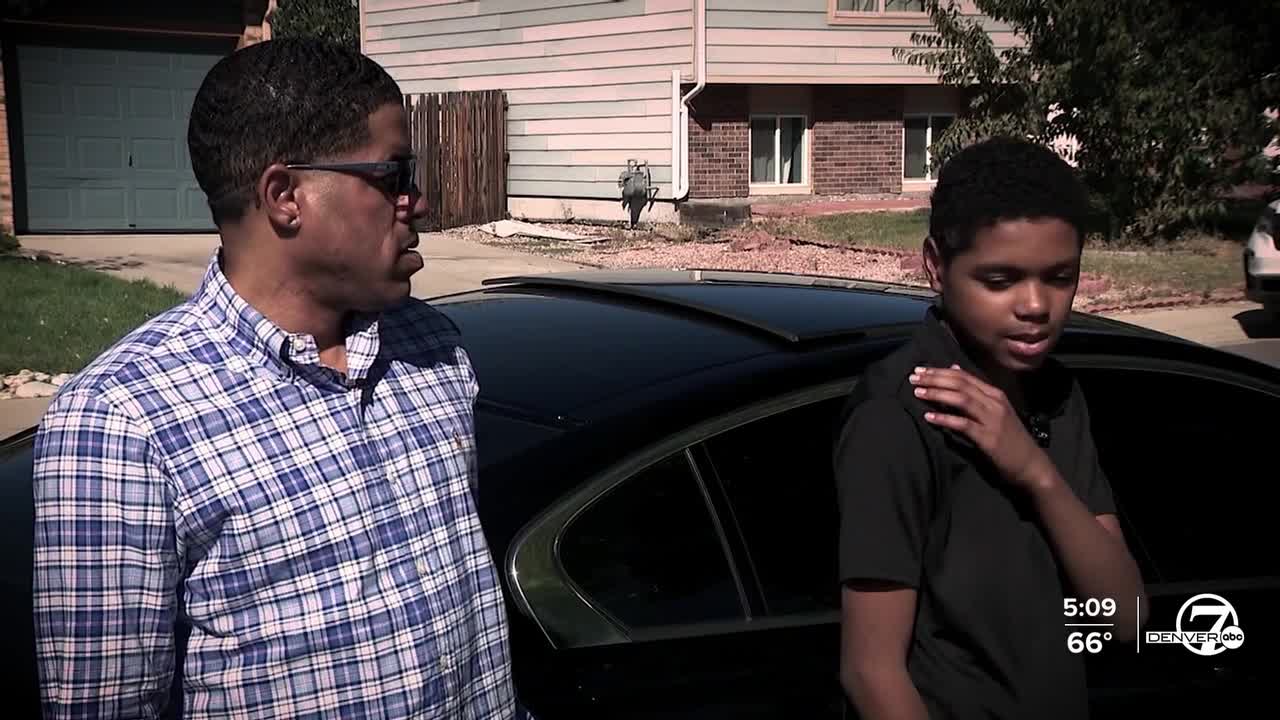DENVER — A report led by the University of Colorado Boulder outlines five ways to enhance safety in K-12 schools. Denver7 took those suggestions to families who have been impacted by school violence to hear their thoughts.
Nearly two years ago, Theodore Temple got a call from Marie L. Greenwood Academy in Denver that he will never forget.
"They were saying, 'You need to get to Children's Hospital as fast as you can, '" Theodore recalled.
His son, Teddy, had been stabbed multiple times by another classmate during school in October 2023.

Denver
Denver 7th grader recovering after being stabbed by fellow student during class
Teddy, who was 12 at the time, was stabbed in the head, neck and shoulder, according to his family. Theodore called the attack unprovoked.
In the nearly two years since the stabbing, Theodore said he still has concerns when sending his children to school.
"It makes me wonder, you know, what are the schools doing differently?" Theodore said.
He said he still hears about similar violent incidents in local schools.
"It kind of triggers a lot of emotions. It kind of takes me back to that day," Theodore said.
CU Boulder led a review of different safety recommendations in order to determine how K-12 schools can keep their students safe.
The research was funded by the National Institute of Justice's Comprehensive School Safety Initiative following the 2012 Sandy Hook Elementary School shooting.
In a 59-page report, researchers outlined five findings that can provide a "comprehensive approach" to school safety.
- Read the full report below
The five findings focus on the following aspects:
- Gauging school climate
- Creating a continuum of response
- Addressing physical security thoughtfully
- Encouraging upstander reporting
- Implementing universal interventions
The report encourages schools to administer climate surveys to students, parents and staff to assess how safe they feel at school. Those results could then help schools choose programs that could help.
"Those school climate results can tell you something about what people are actually feeling and experiencing, and then you can develop programs to address those experiences," said Sarah Goodrum, the lead author of the report and a CU Boulder professor in the prevention science program at the Institute for Behavioral Science.
Goodrum said schools should offer a range of support for students in order to address various issues instead of using a one-size-fits-all approach.
As for physical security, Goodrum said such methods should be selected thoughtfully.
"Some of the physical security technologies may send the wrong message to students and staff," she said. "We don't have a lot of good evidence on the effectiveness of metal detectors or bulletproof backpacks on keeping schools and students safe. We actually have more evidence on the effect of school climate, the way that the school environment makes students and staff feel, than we do on the physical security technologies."
Goodrum said it's important that students have at least one adult they trust on campus.
"If I could put forth one suggestion for improving school safety in the United States, I would say make sure that every single student in your school has an adult in the building that they can talk to if they're having trouble," she said.
Theodore agrees with some of the recommendations made in the report.
"I think that's a great idea, just being able to talk things out," Theodore said. "It's good to have someone at the school that you could express your concerns to someone that you trust."
Theodore said his son has been doing a lot better since the incident, but he knows the work of protecting students is never over.
"He's doing great. He's playing sports," the father said. "He's still in therapy, you know, but, yeah, we're working through it."





Denver7 is committed to making a difference in our community by standing up for what's right, listening, lending a helping hand and following through on promises. See that work in action, in the videos above.



